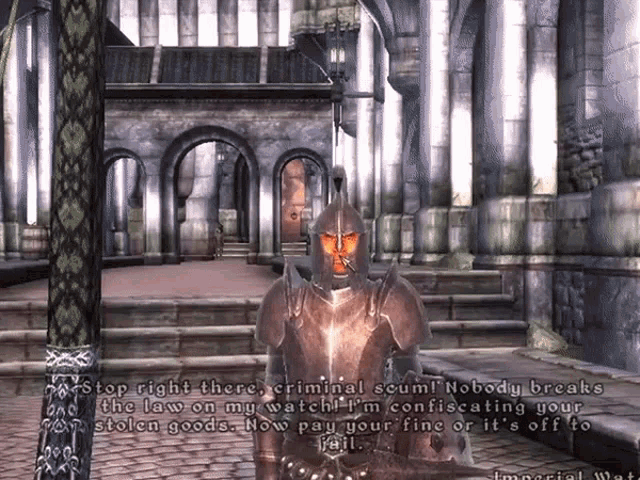Local Gains, Global Grief
Elder Scrolls Oblivion taught me about improvement.
As the development of Oblivion was wrapping up in 2006, O'Dwyer noted that “elements of the game were getting trimmed in an attempt to make the Xbox 360 launch date and - in some cases - to even fit the game on the disc.”
Continues Pagliarulo, “In the shipped game, there's an arena in the Imperial City. The original plan was there was going to be an arena in _every_ city. I’d done the majority of that work, and we ripped it all out because we realised we needed to focus on one [arena] to make it better. That was painful.
“That was 800 lines of dialog. That was all the scripting work. And - it was definitely the right decision. Absolutely.”
Something in my head clicked.
In organisations, we often encourage the improvement of every part, with the hope it will improve the whole.
We may encourage every team to improve their own local speed of delivery, but forget that delivering a product is a global effort - often requiring many different teams to work together.
If the race to complete a product only concludes when all necessary teams have crossed the finish line, then helping the faster teams finish faster will not cause the product to be completed sooner. We’ll only find ourselves waiting at the finish line for the slowest team.
We have three options to shorten the race.
First, we can take the time to understand the obstacles faced by the slowest team, and uproot them.
There will always be a team coming in last, and therefore always a focus for our improvement efforts. The team isn’t coming in last because of their ability, but because of how the organisation is designed (or not) to support them.
In optimising the race for slowest team, we may find we sub-optimise it for the faster teams - they may take on a minor handicap. The net effect is a faster finish, as the race completes only when the slowest team crosses the finish line.
Second, we can reduce the number of runners in the race by removing interdependencies - fewer teams are required to deliver any one product.
Third, we can do both of the above - fewer, faster teams.
The takeaway? We can optimise either the part or the whole, but not both. Either the race to deliver the whole product, or just one team’s part. Either the whole game, or just the level. Choose one.
This article was inspired by Ackoff, Gfader, and NoClip’s documentary. Image from Tenor.
